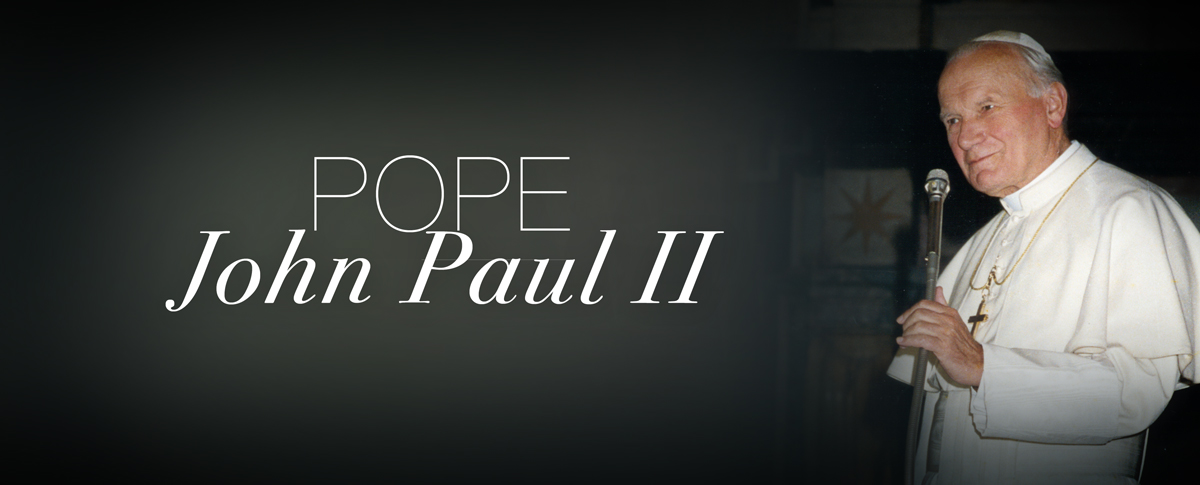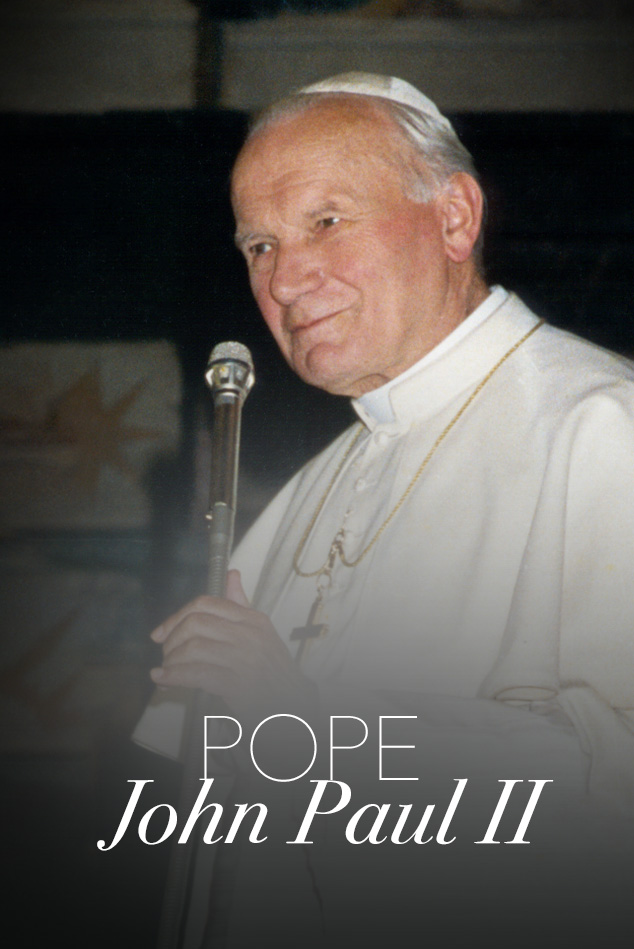The year 1978 will long be remembered as the year of the three popes. The not unexpected death of Pope Paul VI on August 6th, 1978, was followed on August 26th by the election of the "Smiling Pope," John Paul I. Reigning only 33 days, the length in years of Our Lord's earthly life, he died in his sleep of a heart attack on September 28th. Only a few weeks later on October 16th, 1978, the College of Cardinals elected Karol Cardinal Wojtyła, Archbishop of Krakow, Poland, as the first non-Italian Pope since Adrian VI (1522-1523). His pontificate has been one of the most remarkable in history. Both its length and its accomplishments has set the course of the Church for decades, if not for centuries.
Giovanni Battista Montini was born on September 26th, 1897 in Concesio, 8km. (5 miles) from Brescia, in the Lombardi region of northern Italy. Ordained to the priesthood at Brescia on May 29th, 1920, he undertook further studies in Rome, including the Gregorian University. From 1924 until his ordination as archbishop of Milan on December 12th, 1954, he served the Secretariate of State of the Holy See in various capacities, including a 17 year tenure (1937-1954) as Undersecretary of State during the pontificate of Pope Pius XII, with whose own career he was closely associated. Pope John XXIII elevated him to the College of Cardinals on December 15, 1958. he succeeded this greatly beloved Pope as Supreme pontiff on June 21st 1963, taking the name of the Apostle to the Gentiles.
Albino Luciani was born on October 17th, 1912 in Forno de Canale. This small town is called today Canale d'Agordo, and is located 29 km. (18 miles) from Belluno in the province of Veneto, Italy, in which Venice is also to be found. He was ecucated in the minor (high school) and major (college) seminaries of the diocese of Belluno and ordained to the priesthood on July 7, 1935, later receiving a doctorate in sacred theology (S.T.D.) from the Pontifical Gregorian University in Rome. He returned to the diocese to serve as seminary vice-rector from 1937 to 1947, also teaching in the areas of dogmatic and moral theology, canon law and sacred art. From 1947 he served as vicar general of the diocese, until his ordination as bishop of Vittorio Venuto on December 27th 1958. Bishop Luicani participated in all the sessions of the Second Vatican Council (1962-1965), and on December 15th, 1969 was appointed Archbishop and Patriarch of Venice. Pope Paul VI made him a cardinal on March 5, 1973. On being elected to succeed Pope Paul as Supreme Pontiff on August 26, 1978, he took the names of his immediate predecessors, John XXIII and Paul VI, the first Pope in history to do so.
While Pope John Paul I delivered 19 addresses and was noted for his good humor, especially with children, no significant papal acts are attributed to his pontificate.
Karol Wojtyła was born in Wadowice, Poland (near Krakow) on May 18, 1920. In 1938 he became a student of theatre and poetry in the university of Krakow, but had to undertake manual labor in a stone quarry and chemical plant when the Nazis invaded Poland at the beginning of World War II. In 1942 he began secret studies for the priesthood in an "underground" seminary of the Archbishop of Krakow and was ordained to the priesthood on November 1, 1946. After ordination he was sent to Rome to complete doctoral studies at the University of St. Thomas Aquinas (Angelicum). He then undertook a brief parish career, combining pastoral work with the attainment of a second doctorate at the Catholic University of Lublin, to which he was assigned to teach ethics in 1954. On Septemeber 28th, 1958 he was ordained to the episcopacy as the Auxiliary Bishop of Krakow, to which See he succeeded as Archbishop on January 13, 1964. As Auxiliary and then Archbishop he participated in all the sessions of the Second Vatican Council. Pope Paul VI made him a Cardinal on June 26, 1967. After the death of Pope Paul he was an elector in the conclave that chose Pope John Paul I, whom he succeeded as Pope on October 16, 1978, taking his name.






